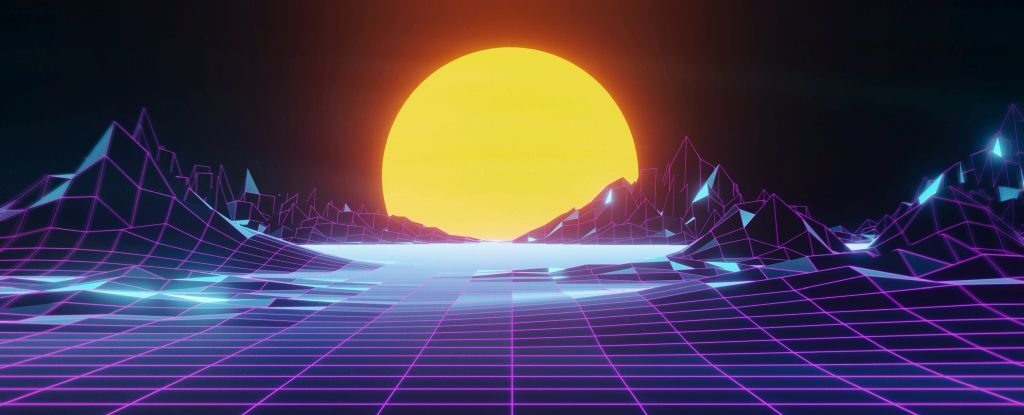Is the entire universe a simulation? What if your world is just a digital environment built from binary code? Is it a conscious computer game created by supreme beings from another timeline? What if every person on Earth was no different from a character in a movie, reading from a script you’ve never seen? As humans have explored virtual reality and artificial intelligence, this conspiracy has grown in popularity. Leaders at the forefront of modern technology have declared: it’s not just a possibility, it’s a likelihood. According to Elon Musk, there’s a billion-to-one chance that humanity is not living inside a simulated universe. That means our world may not exist, but is that scientifically possible? Could our entire universe exist within one massive virtual space?
Similar questions have plagued humanity for thousands of years, long before the modern era. Many religions, from ancient pantheons to monotheistic traditions, claim that a supreme being sculpted our universe from nothing. You won’t find the word “simulation” in any religious books, but the concept is very similar—a great entity designed our universe from scratch. But what if that god was playing a deception game with us? In the 17th century, French philosopher Rene Descartes discussed an all-powerful creator in his Meditations on First Philosophy. He imagined a deceptive deity, an evil demon, who designed a false reality to deceive the people inside of it. Descartes’s demon was later refined into a philosophical thought experiment called the Brain in a Vat.
What if your brain was taken out and placed in a container filled with liquid? Inside that vat, your brain is connected to a computer, which sends your nerve cells the same impulses they would experience inside your body. How could you figure out if your experiences are real or simulated? Let’s compare this thought experiment to a real-life scenario. Imagine, for a moment, you’ve stepped into a virtual reality game. Once you put on your 3D glasses, you find yourself in the dark, dusty halls of a creepy old mansion. As you wander through its shadowy corridors, your ears are prickled by the creaking of floorboards. Distant voices send chills down your spine, and you experience a genuine sense of terror. It looks real. It sounds real. It may even feel real. But does that make it real?
That’s a difficult question to answer. You’re suspending your disbelief, but only temporarily. You haven’t mistaken that haunted mansion for your real life. No matter how realistic it looks, you know, in the back of your mind, that it is not real. Currently, designers can create interesting 3D spaces that fool our senses, but the illusion is easily broken. You know too much to confuse the real world with a virtual one. If you know you can escape from a simulated world, that realization influences your behavior. Even if your emotions are genuine, they’re not exactly real. Some scientists disagree with this idea. They claim that an escape path will not change your behavior if the illusion is strong enough.
Let’s go back to our haunted house. Imagine, as you’re walking down the halls, a monster leaps out of the shadows. You get scared, and you take off your headset. You’ve escaped the virtual environment, but how do you feel? Your heart races in your chest. Your respiratory rate climbs higher. After coming back to reality, it takes your brain a few moments to understand exactly what’s happening. Your brain was deceived by that fabricated world. It wasn’t permanent, but for a few minutes, your sense of reality was broken. Could VR create a permanent, deceptive experience? Could your brain forget which reality is which? Instead of viewing one space as real and the other as fake, your brain may equate the two environments as distinct but equal realities.
Let’s accelerate 500 years into the future. These days, virtual reality is just a normal part of how we live. Clunky headsets have given way to sleek eyeglasses, which effortlessly transform the world around you. With the press of a button, your reality jumps from one realistic environment to another. At first, these sensory stimuli feel like any other game, but what if virtual stimuli become integrated into our daily lives? People may forgo their real lives in favor of a simulated existence. Knowledge is power, but your senses are ultimately fallible. They can be fooled, and they do make mistakes. A virtual universe could hypothetically merge with our reality, and our brains may forget how to tell the difference.
This timeline sounds a lot like science fiction, doesn’t it? It is speculation, but the future of VR gives our grand conspiracy a sturdy, conceptual backbone. But one outstanding hurdle remains: you can still take your glasses off. At any point, you can flip a switch, power down, and return to your real life. In this universe—the reality you’re inhabiting right now—that’s not an option. Assuming our grand conspiracy theory is correct, how can a simulated reality exist without our knowledge? For a simulation to be totally convincing, it has to satisfy a set of objectives. First and foremost, it must be perceptually spellbinding. The fake environment must completely deceive the brain. If the brain does not believe your environment is “real,” the simulation will be compromised immediately.
There are two methods by which a simulated reality could deceive the brain. Like the brain-in-a-vat experiment, you could separate the body and mind, immersing your consciousness into a false universe. Your body would stay in reality, while your mind is unknowingly displaced into a simulated world. That’s one method, but there’s another option. Your entire being—including your body and your mind—could be created within the simulation. In this case, everything in the world—every atom, every force, every natural law—would not exist in reality. Keeping these two methods in mind, is it possible to create a simulated universe that completely deceives the brain?
You could have entered into a simulation the moment you were born. Once your life ends, you may wake up somewhere with a pair of glasses on your face. Little by little, you start to remember your real life. This explanation is interesting to think about, but others are far more plausible. Nick Bostrom says the history of humanity could be an ancestral simulation run by a post-human species. In his famous essay, Bostrom laid out three potential conclusions. According to Bostrom, only one of these possibilities will end up being true in the far-off future. First, humanity could go extinct before entering a post-human state. If our species dies out, we stand no chance of progressing into a post-human society. Therefore, the probability of fabricating an artificial reality becomes approximately zero. To put it simply, we’re in the real world.
Let’s assume humans do survive long enough to evolve into a post-human state. If that happens, post-humans may not be interested in running ancestral simulations. It’s possible a post-human society will disregard their past or simply abandon VR technology. If this were true, we can draw the same conclusion: we’re not living in a simulation. What if humans do progress into a post-human state and post-humans are interested in running ancestral simulations? In that case, it’s very likely our present universe is a simulation—one of thousands of similar timelines investigated by a superior species. Our universe may be the only one where dinosaurs were annihilated by a meteor strike. If Bostrom’s simulation theory were true, our reality is nothing but a small piece of a post-human experiment.
This theory, like many others, makes a lot of assumptions. It assumes that post-humans will, at some point, create new realities and that we will populate those realities with conscious entities. But is this technological leap even possible? We don’t know for sure. There’s still so much we don’t understand about artificial intelligence. If we can create a functioning AI, we could place multiple artificial beings in a simulated environment. It’s possible to build a simulated universe that follows the same path as ours. No matter how convincing these arguments sound, they’re educated guesses about the future of our reality.
Harvard physicist Lisa Randall says there’s no evidence to support any theory that we’re living in a simulation. At this stage in human evolution, we don’t have the knowledge or the technology to know anything for sure. It’s like arguing for the existence of artificial intelligence or independent consciousness. It’s a compelling concept. It transforms the way we think about life, perception, and the state of our universe. But until we find real proof, it’s all just theoretical. Let’s ignore all those plot holes for a moment. Let’s think about the idea that the entire universe is a huge, simulated reality. Every sky-high building, every beautiful sunset, every traffic jam… it’s all just a bundle of data.
Could you ever wake up from that simulation? Is there a way out? Probably not. You’re stuck inside your simulated reality the same way a character is stuck inside their fictional universe. If that character realized they were inside a game, they couldn’t suddenly jump into the real world. They wouldn’t pop out of the screen and suddenly live a normal life. Whether this universe is simulated or not, your reality is likely the only one you will ever know.

